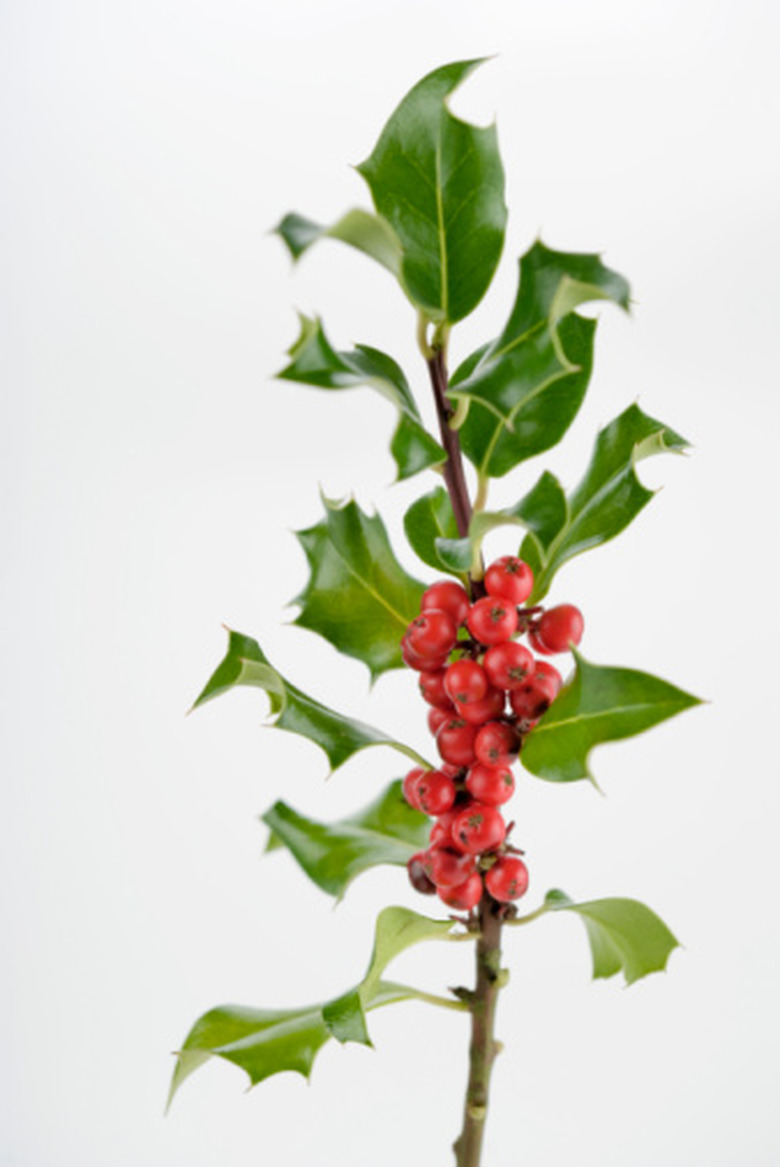Do Deer Eat Holly Bush Berries?
In areas of the United States with large deer populations, it is not uncommon to find the deer grazing in a yard, making a quick meal of many landscape plants. Some plants, like the American holly, are rarely bothered by the deer.
In areas of the United States with large deer populations, it is not uncommon to find the deer grazing in a yard, making a quick meal of many landscape plants. Some plants, like the American holly, are rarely bothered by the deer.
American Holly
The American holly bush is one of the less likely landscape plants to become a dinner for a hungry deer. The deer often avoid this plant and damage rarely occurs, according to the Rutgers University database of deer-resistant plants.
Toxicity
In humans, the berries of the holly plant are toxic. When ingested, the red berries cause nausea, vomiting and diarrhea. Deer may also experience similar problems when eating from the holly bush.
- In areas of the United States with large deer populations, it is not uncommon to find the deer grazing in a yard, making a quick meal of many landscape plants.
- The deer often avoid this plant and damage rarely occurs, according to the Rutgers University database of deer-resistant plants.
Structure
The plant's structure is also a reason the deer tend to avoid this plant. Berry clusters are surrounded by thick, glossy evergreen leaves which sport sharp spines on the end. Spines, like thorns, act as a natural deer deterrent.
Deer-Resistant Landscaping
Planting shrubs like the American holly and perennial flowers with a high deer-resistant rating is an ideal way to create a lush landscape with little concern for deer. Contact a local nursery for more information about planting American holly and other deer-resistant varieties for your region.
Holly Bushes & Deer
The need for a permanent solution to "the deer problem" usually begins when people wander out into their yard to discover that these garden trespassers have mowed down some beloved shrubs. Unfortunately, there isn't a permanent solution. " Holly, though, is a good garden choice for deterring deer. Still, you can successfully develop a deer-resistant landscape by growing plants they don't like. Deer generally dislike aromatic or pungent plants, including those that have milky sap or have a bitter taste. Protect vulnerable garden areas closer to the house with deer fencing or deer-resistant hedges–an excellent use for holly–and use deer repellents for extra discouragement. Hollies that are "sometimes severely damaged" and not as well-suited to deter deer are Blue holly, Japanese holly and Pernyi holly. Hollies can tolerate some shade, but plant them in full sun for the best berry production.
- The plant's structure is also a reason the deer tend to avoid this plant.
- Planting shrubs like the American holly and perennial flowers with a high deer-resistant rating is an ideal way to create a lush landscape with little concern for deer.
